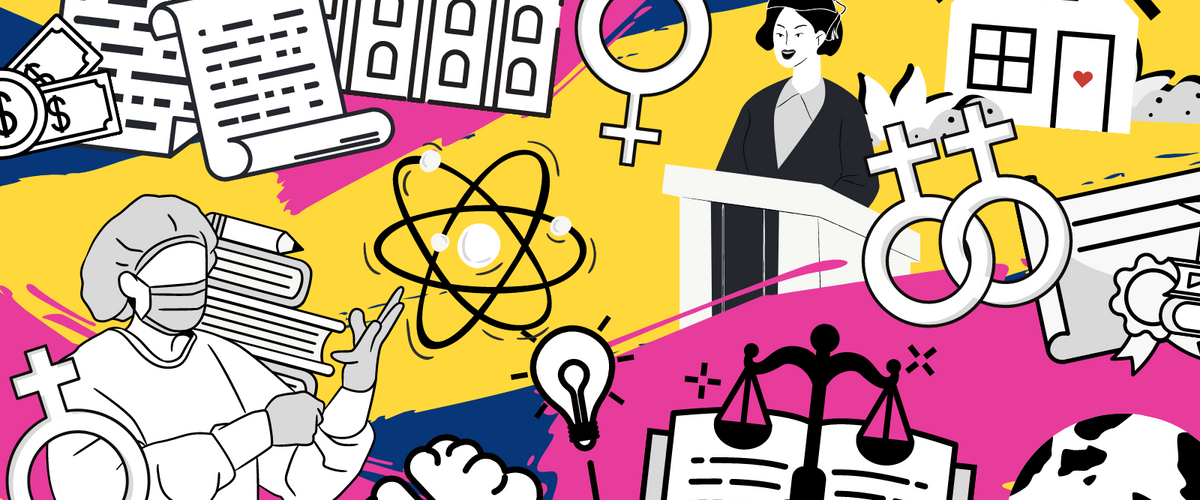Notable women’s history at BU
Posted March 2021
Boston University’s founding mission was built upon inclusion, regardless of gender, race, or religion. The University was the first in the nation to admit women to medical school and award a Ph.D. to a woman. We’re honoring Women’s History Month by sharing some of our most significant milestones.

Boston University is among the first universities in the United States to open all of its divisions to woman students.

The New England Female Medical College was founded in 1848, becoming the first institution in the U.S. to train women in medicine, and graduated the first black female physician, Rebecca Lee Crumpler. Boston University merged with the New England Female Medical College in 1873, becoming the first accredited coeducational medical school in the U.S.

In 1877, Helen Magill earns her Ph.D. in Greek through Boston University’s College of Arts and Science. She was the first woman to earn a doctorate in the United States, making BU the first university in the U.S. to grant a Ph.D. to a woman.
 Anna Oliver, an 1876 graduate of the School of Theology, was the first woman in the United States to receive a degree in theology. Although the Methodist Church would not ordain her, she did serve as a pastor to several churches.
Anna Oliver, an 1876 graduate of the School of Theology, was the first woman in the United States to receive a degree in theology. Although the Methodist Church would not ordain her, she did serve as a pastor to several churches.

Lelia Josephine Robinson becomes the first woman graduate of Boston University School of Law. In 1882, she becomes the first woman admitted to the Massachusetts bar.

Anna Christy Fall graduates from Boston University School of Law, later becoming the first woman to try a case before a jury in Massachusetts. She wins the case and a $700 verdict for her client.

The first on-campus organization created by women dates back to 1912. The goal was to support and advance the women of Boston University. The efforts of the organization eventually resulted in the appointment of the first Dean of Women at BU, Lucy Jenkins Franklin.

The Harriet E. Richards Cooperative House is founded by former BU Dean of Women Lucy Jenkins Franklin as a resource for women who could not afford room and board in addition to the cost of a university education.

The Boston University Women’s Guild is established. The guild sponsors events to bring women of BU’s faculty and staff together and to raise money for the Guild Scholarship Fund, awarded to women graduate students over the age of 30. Join BU Women’s Guild in collaboration with BU Technology Development, BU ARROWS, and BU Office of Research on March 12 for a conversation with Dr. Dana Kanze of the London Business School. Dr. Kanze will talk about strategies for female innovators seeking to build relationships with investors, with an explicit focus on overcoming bias in investor Q&A.

Virginia Sapiro, a political scientist, and women’s studies scholar is named dean of the College and Graduate School of Arts & Sciences. She is the first woman dean in the college’s 134-year history.

The BU Women’s Resource Center, first opened in the 1970s, changes its name to the BU Center for Gender, Sexuality, and Activism, to better realize the unique needs of women, queer, and trans students on campus.

The first in her family to attend college, Susan Fournier, a leading international expert on brand marketing, also becomes the first woman to lead the Questrom School of Business.
Alumna Alexandria Ocasio-Cortez (CAS’11) becomes the nation’s youngest woman to serve in the US Congress, at age 29.

Mariette DiChristina (COM’86), the first woman to lead Scientific American, a globally respected publication since its founding in 1845, becomes the new dean of BU’s College of Communication.
